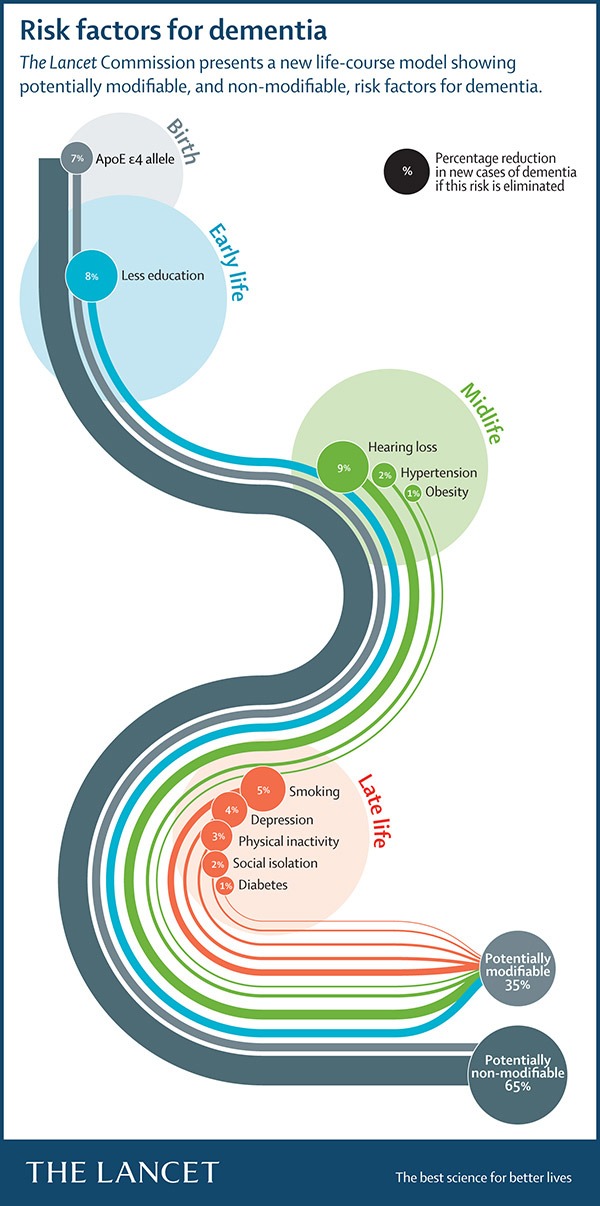 ___
___
The Startling Link Between Sugar and Alzheimer’s (The Atlantic):
“A longitudinal study, published Thursday in the journal Diabetologia, followed 5,189 people over 10 years and found that people with high blood sugar had a faster rate of cognitive decline than those with normal blood sugar—whether or not their blood-sugar level technically made them diabetic. In other words, the higher the blood sugar, the faster the cognitive decline.
“Dementia is one of the most prevalent psychiatric conditions strongly associated with poor quality of later life,” said the lead author, Wuxiang Xie at Imperial College London, via email. “Currently, dementia is not curable, which makes it very important to study risk factors”… That’s an important point that often gets forgotten in discussions of Alzheimer’s. It’s such a horrible disease that it can be tempting to dismiss it as inevitable. And, of course, there are genetic and other, non-nutritional factors that contribute to its progression. But, as these and other researchers point out, decisions we make about food are one risk factor we can control. And it’s starting to look like decisions we make while we’re still relatively young can affect our future cognitive health.”
The Study
HbA1c, diabetes and cognitive decline: the English Longitudinal Study of Ageing (Diabetologia):
- Aims/hypothesis: The aim of the study was to evaluate longitudinal associations between HbA1c levels, diabetes status and subsequent cognitive decline over a 10 year follow-up period.
- Methods: Data from wave 2 (2004–2005) to wave 7 (2014–2015) of the English Longitudinal Study of Ageing (ELSA) were analysed. Cognitive function was assessed at baseline (wave 2) and reassessed every 2 years at waves 3–7. Linear mixed models were used to evaluate longitudinal associations.
- Conclusions/interpretation: In conclusion, our study provides evidence to support the association of diabetes with subsequent cognitive decline. Moreover, our findings show a linear correlation between circulating HbA1c levels and cognitive decline, regardless of diabetic status. Future studies are required to determine the long-term effects of maintaining optimal glucose control on cognitive decline in people with diabetes.
The Study In Context
- Study: 46.7 million Americans have Alzheimer’s Disease brain pathology today, so it’s urgent to prevent or at least delay progression to clinical disease
- Bill Gates announces $50 million investment to fight Alzheimer’s Disease
- From Anti-Alzheimer’s ‘Magic Bullets’ to True Brain Health
- Solving the Brain Fitness Puzzle Is the Key to Self-Empowered Aging
- Report: 35% of worldwide dementia cases could be prevented by modifying these 9 modifiable risk factors
{ All Hypnosis Feeds
via SharpBrains https://sharpbrains.com
January 29, 2018 at 10:12AM

No comments:
Post a Comment